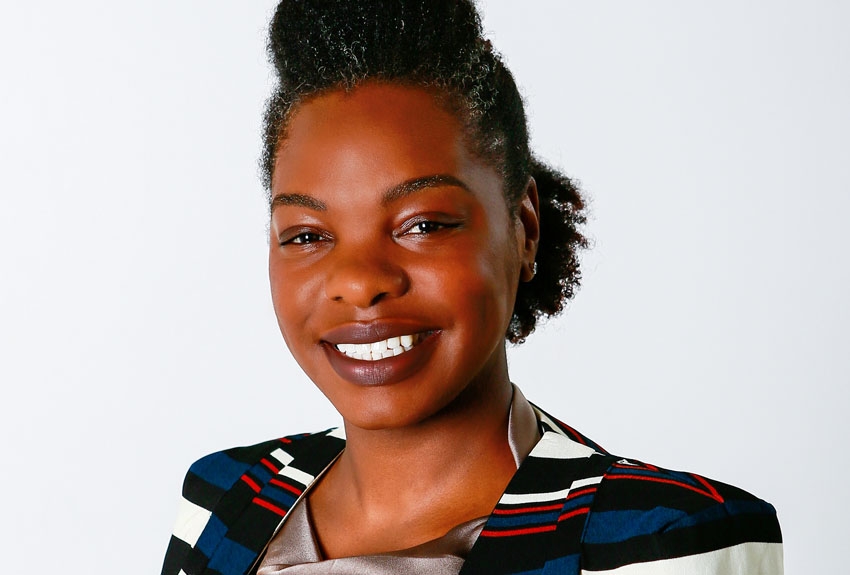C. Tandi Kuwana is a Zimbabwe-born Australian who has a passion for promoting mental health in culturally diverse communities.
Tandi is a trained and registered mental health practitioner with 14 years’ experience. She describes herself as a motivated and passionate multicultural mental health consultant.
A Registered Mental Health Nurse, Tandi's experience includes working in inpatient and outpatient settings. She's the Co-chair of the Mental Health Commission Recovery College Expert Panel, and a graduate and committee member of the African Leadership Initiative.
Tandi's Hocking Fellowship
Friendship Bench model could help CaLD communities living with mental health issues in Australia
Translating an innovative, holistic and culturally appropriate model of mental health care originating in Zimbabwe could have far-reaching benefits for communities in Australia.
C. Tandi Kuwana explored how the Friendship Bench initiative is fighting stigma about mental health issues through her SANE Hocking Fellowship 2018-2019.
Tandi travelled to Zimbabwe to understand how a progressive approach to tackling stigma might support migrants from culturally and linguistically diverse (CaLD) communities in Australia to feel comfortable seeking help for mental health issues.
The Friendship Bench model sees local grandmothers trained in talk therapy deliver brief psychological treatments to community members in primary health centres.
The grandmothers are well-known and trusted within their communities, as they also engage in public health promotion. The holistic model of care used helps break down stigma.
The primary health workers refer patients to the bench where the trained grandmothers will be sitting. The grandmothers establish a therapeutic relationship with the service user.
During an initial assessment, the grandmother determines whether the service user needs further interventions. If so, they offer to visit them at home or encourage them to return for more sessions.
Each service user gets 6 sessions with the grandmothers. Should they need more input, they are referred to the psychiatrist.
Through interviews with grandmothers, service users, and other key health promotion figures in Zimbabwe, Tandi found:
- Patients who accessed the Friendship Bench service benefitted from the mental health literacy they received during their treatment, which also could be viewed as capacity building for the community.
- The grandmothers were able to educate the patients on the benefits of seeking help, what to watch out for and reassured the patients they would support them until they felt better or if they needed to access mental health services.
- Most people were willing to accept help provided there was sufficient time allowed to establish trust with the grandmothers.
- Outreach services are recommended until openness about engaging with mainstream mental health services is achieved.
- Grandmothers’ awareness of the cultural and religious beliefs may have contributed to service users feeling comfortable to engage with the service.
- Most of the benches were placed in health clinics that people already accessed, so the services offered a holistic approach to their delivery of care.
Tandi also found that language relating to the Friendship Bench initiative was vital to its success.
It is called a Friendship Bench rather than a ‘mental health bench’ so service users view it as a place to visit to speak to someone about their social and emotional problems.
The name is instrumental to its success, as mental health issues are still taboo in Zimbabwe.
The Friendship Bench initiative is progressively challenging the negative narrative of mental health issues, which many people from CaLD communities in Australia also face.
Migrants and refugees whose heritage country do not have established mental health services do not engage and access mainstream mental health services of their host countries.
There are gaps in the data and information on the prevalence of people from CaLD communities in Australia living with mental health issues but according to the National Mental Health Commission (2019) people from CaLD backgrounds have lower rates of engagement with mainstream mental health services.
This lack of engagement could be related to:
- not knowing how to navigate the Australian health system
- lack of understanding of mental illness
- cultural understanding of mental health.
For CaLD communities, stigma relating to mental health issues may also deter people from accessing mainstream Australian mental health services.
Many migrants and refugees from developing countries underutilise existing mental health services because of the fear of being shunned by their communities.
Help-seeking for most CaLD communities start and end with pastoral care, so working collaboratively with religious leaders may also help in breaking down stigma if people know they have the support of religious leaders.
A diverse workforce that is inclusive of CaLD and Aboriginal health workers enables clinicians to have a better understanding of language and cultural practices.
The Friendship Bench is not advertised as a stand-alone mental health service, and uses an integrated care approach to mental health, which Tandi believes would work well for people from CaLD backgrounds in Australia.
A similar bench could be set up outside health centres in areas with a high percentage of people from CaLD background. To make the project successful, the bench can be called a ‘yarning bench’.
A holistic approach to mental health that brings service providers together to collaborate may help service users and their families have their social, emotional, financial and physical needs met.
Tandi’s research revealed evidence that this model works to improve mental health literacy for the community and also outcomes.
The Friendship Bench initiative has been successful not only in Zimbabwe, but also in other parts of Africa and in New York.
Tandi’s research suggests that this model would also help break down stigma, improve mental health literacy and support help-seeking among CaLD communities in Australia, to support people living with mental health issues to live long and fulfilling lives.









